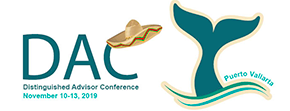On the Brink: Many are $200 Away from Financial Collapse
Despite the Bank of Canada’s recent interest rate hold and decreasing mortgage rates, many families are on the brink of being unable to pay all of their bills. This, as new carbon taxes are about to emerge in some of the hardest hit provinces. Early tax filing may help.
In a recent Ipsos poll, 46% of participants said that they’re $200 or less away from financial insolvency at the end of the month. The percentage of respondents reporting that they are in such a precarious financial position has already increased  by 6% since Ipsos’ poll for the previous quarter. The situation is the direst for residents of Manitoba and Saskatchewan, where 56% are just $200 away from financial disaster.
by 6% since Ipsos’ poll for the previous quarter. The situation is the direst for residents of Manitoba and Saskatchewan, where 56% are just $200 away from financial disaster.
Fortunately, a new Climate Action Incentive Rebate is available to help cover the rising costs for tax filers in some provinces, as reported last week. Rebates must be claimed on the 2018 tax return and calculated as follows:
|
Province |
Taxpayer |
Spouse/Eliglble Dependant
Dependant |
Qualified Dependant |
|
SK |
$305 |
$152 |
$76 |
|
MB |
$170 |
$85 |
$42 |
|
ON |
$154 |
$77 |
$38 |
|
NB |
$128 |
$64 |
$32 |
The relief offered by the Climate Action Incentive payment is temporary and does not address the underlying problem: Canadians have too much debt and retiring it should be a big priority.
The Bank of Canada’s decision to hold interest rates steady at 1.75% for the past two quarters has proven to be too little, too late for many who have felt the pinch of several rate hikes in 2017 and 2018. In fact, 51% say those earlier rate increases have had a significant impact on their lives, with 45% anticipating they’ll have to go further into debt in order to pay their basic living expenses.
With so many Canadians only $200 away from facing financial collapse, and the Bank of Canada indicating that further interest-rate increases are imminent, now is the time to focus on debt reduction and to review mortgage and investment strategies.
Things to discuss with tax and financial advisors:
-
Filing a tax return early and to the best benefit of the whole family, to secure the biggest tax refunds legally possible
-
How to use those tax refunds wisely to pay down debt
-
How to manage continuing debt balances in advance of potentially higher costs of living
Additional educational resources: Take a free trial of the Debt and Cash Flow Management course, and learn more about how to help your clients build family wealth and economic resilience at DAC 2019 in Puerto Vallarta!
COPYRIGHT OWNED BY KNOWLEDGE BUREAU INC., 2019.
UNAUTHORIZED REPRODUCTION, IN WHOLE OR IN PART, IS PROHIBITED.
 |
 |
 |
 |
|
Refer a Friend |
Research |
Calculators |
Course Trials |
 |
 |
 |
 |